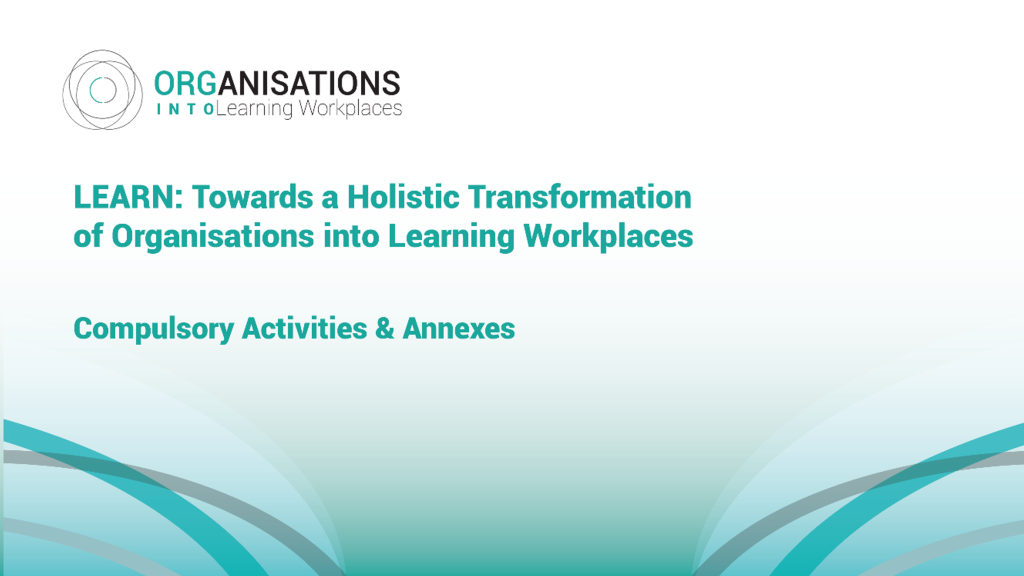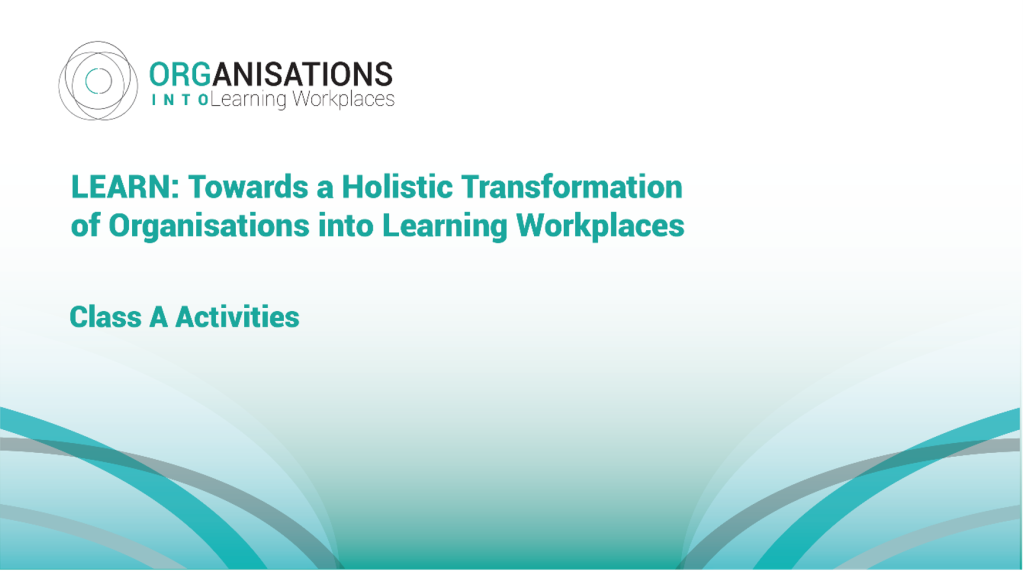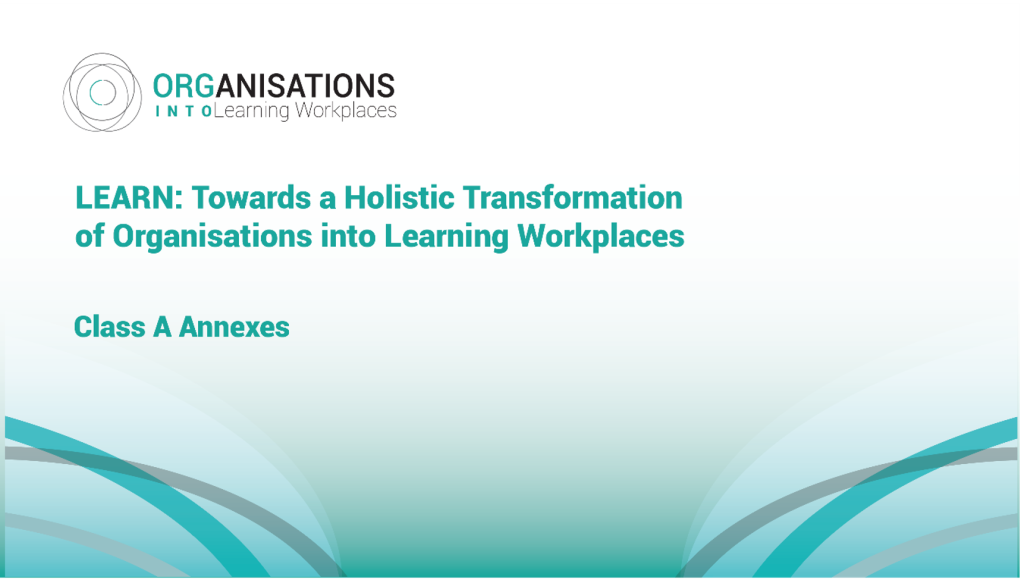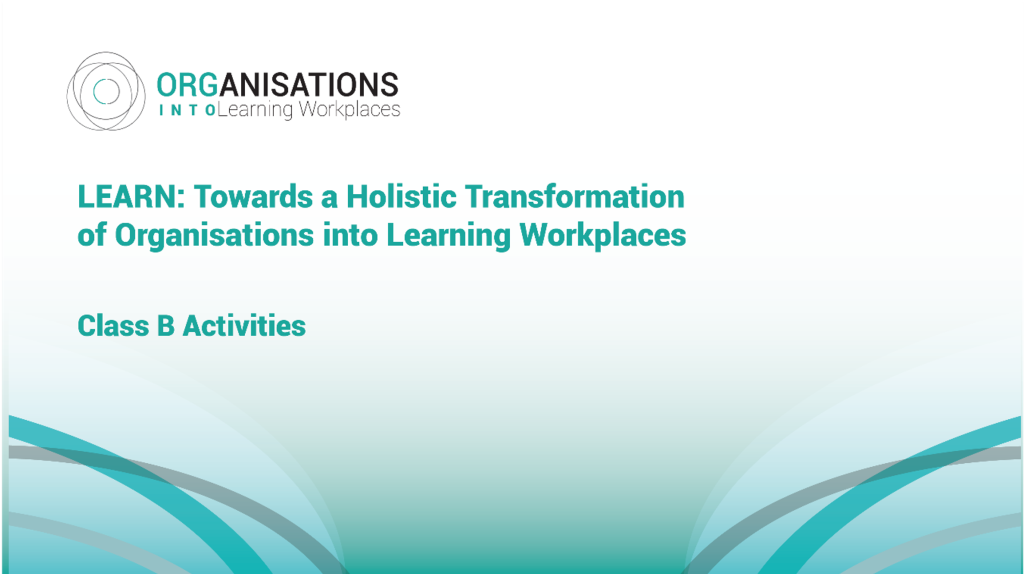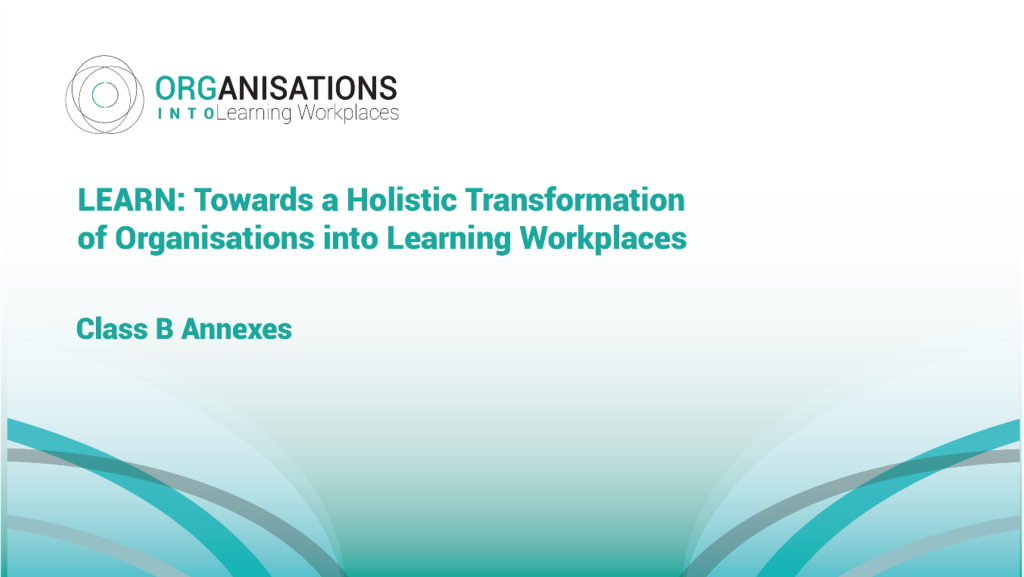
The transformation of workplaces into “Learning Workplaces” requires a strategic approach to workplace learning and a well-defined learning methodology. The aim of this activity has been the development of learning activities and tools to support this approach and be used to implement such a methodology.
The “LEARN” toolkit, a set of 37 activities and tools of different types – non-formal/informal learning activities, TNA tools, skills’ anticipation tools, learning evaluation tools, tools for strategic learning, etc. – have been developed to serve the vision of establishment of a holistic learning culture within workplaces and to be used for the transformation and subsequent certification of organisations. These activities and tools are the result of collective work by all partners, who provided invaluable insights into the content of the developed learning material, deriving from workplace learning
practices already in place in their countries and also from their own experience with learning and/or with working with organisations.
The final activities and tools, which are included in the “Learning Workplace” certification scheme, are aligned with the 10 Building Blocks of effective adult learning policies, as described in the Final Report of the ET2020 Working Group 2016-2018 “Promotion of Adult Learning in the Workplace”, addressing different workplace needs, and have been divided into 3 categories – Compulsory, Category A and Category B (COM:5, CA:19, CB:13) – based on their complexity and importance for workplace transformation. The number of activities that organisations need to implement depends on the workplace size, while the type of activities that they need to select for implementation depends on the learning system in place and the type and specific goals of the organisation.
Additionally, the activities and tools developed are:
- Flexible and adaptable to different types and sizes of organisations;
- Aligned with organisations’ strategy and goals;
- Designed to provide a lifelong learning pathway to employees (not only for the tasks involved in their current job positions);
and they provide:
- Incentives for organisations (including a certification aligned with the ISO standards); and
- Incentives for employees.


